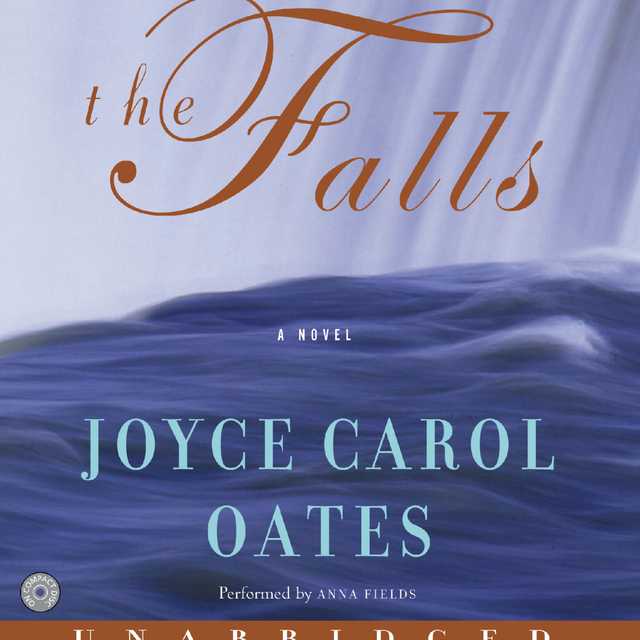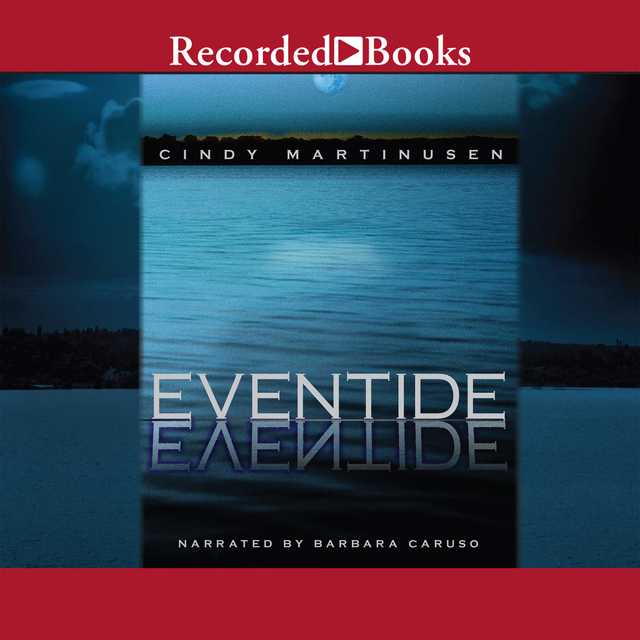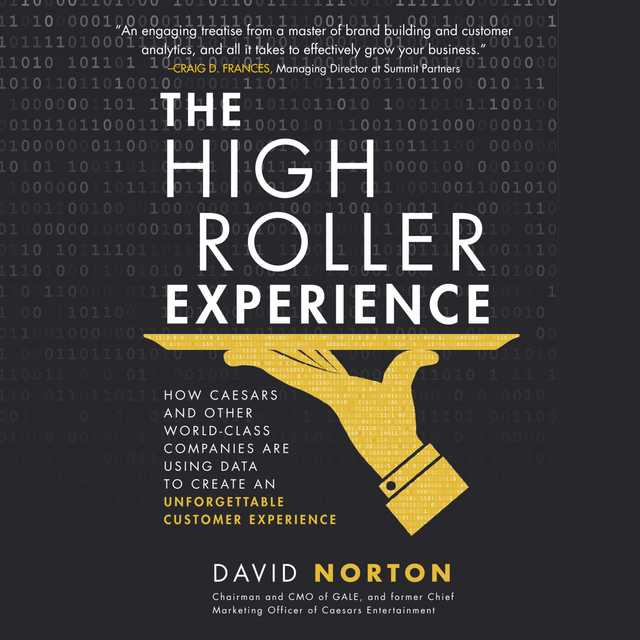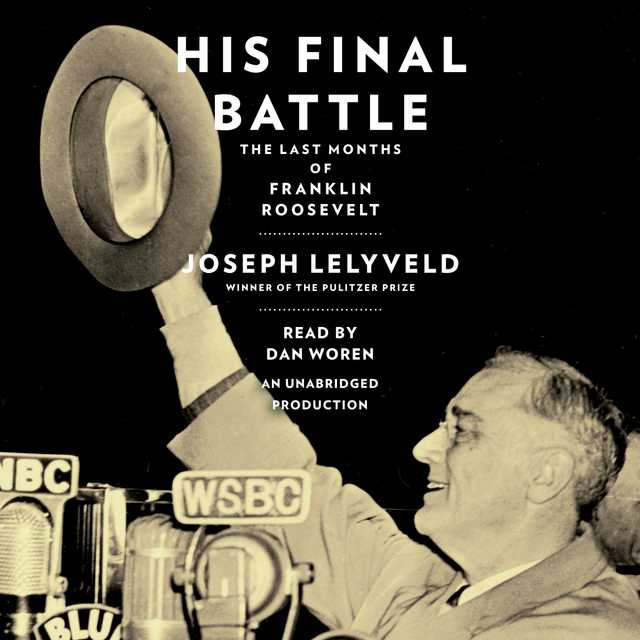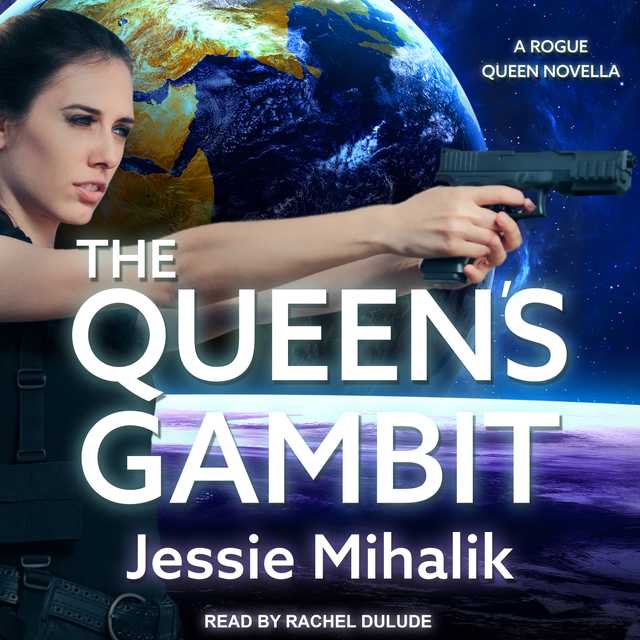The Falls Audiobook Summary
A man climbs over the railings and plunges into Niagara Falls. A newlywed, he has left behind his wife, Ariah Erskine, in the honeymoon suite the morning after their wedding. “The Widow Bride of The Falls,” as Ariah comes to be known, begins a relentless, seven-day vigil in the mist, waiting for his body to be found. At her side throughout, confirmed bachelor and pillar of the community Dirk Burnaby is unexpectedly transfixed by the strange, otherworldly gaze of this plain, strange woman, falling in love with her though they barely exchange a word. What follows is their passionate love affair, marriage, and children — a seemingly perfect existence.
But the tragedy by which their life together began shadows them, damaging their idyll with distrust, greed, and even murder. What unfurls is a drama of parents and their children; of secrets and sins; of lawsuits, murder and eventually redemption.
Set against the mythic historic backdrop of Niagara Falls, Joyce Carol Oates explores the American family in crisis, but also America itself in the mid-twentieth century. The Falls is a love story gone wrong and righted and it alone places Joyce Carol Oates definitively in the company of the great American novelists.
Performed by Anna Fields
Other Top Audiobooks
The Falls Audiobook Narrator
Anna Fields is the narrator of The Falls audiobook that was written by Joyce Carol Oates
Joyce Carol Oates is a recipient of the National Medal of Humanities, the National Book Critics Circle Ivan Sandrof Lifetime Achievement Award, the National Book Award, and the 2019 Jerusalem Prize, and has been several times nominated for the Pulitzer Prize. She has written some of the most enduring fiction of our time, including the national bestsellers We Were the Mulvaneys; Blonde, which was nominated for the National Book Award; and the New York Times bestseller The Falls, which won the 2005 Prix Femina. She is the Roger S. Berlind Distinguished Professor of the Humanities at Princeton University and has been a member of the American Academy of Arts and Letters since 1978.
About the Author(s) of The Falls
Joyce Carol Oates is the author of The Falls
More From the Same
- Author : Joyce Carol Oates
- The Man Without a Shadow
- Black Dahlia & White Rose
- The Museum of Dr. Moses
- A Widow’s Story
- Sourland
- Publisher : HarperAudio
- Abraham
- American Gods [TV Tie-In]
- Dead Ringer
- House of Sand and Fog
- Prey
The Falls Full Details
| Narrator | Anna Fields |
| Length | 17 hours 33 minutes |
| Author | Joyce Carol Oates |
| Publisher | HarperAudio |
| Release date | September 14, 2004 |
| ISBN | 9780060786564 |
Additional info
The publisher of the The Falls is HarperAudio. The imprint is HarperAudio. It is supplied by HarperAudio. The ISBN-13 is 9780060786564.
Global Availability
This book is only available in the United States.
Goodreads Reviews
mark
October 15, 2014
The terrible, wonderful appeal of a raging waterfall: you can cross above it, brave acrobat... you can lose yourself in it, angst and sadness begone, your body falling into something greater than the cares that weigh you down... you can wait beside it, a spectral vision of mourning and tragedy, a local icon for tourists to gape at, waiting for that body, waiting for the falls to rebirth its lonely suicide as it always eventually will... you can live next to it, next to its tamer parts, the waterfall’s majestic rage always out of sight, a thing for the tourists but not for you... your car can plunge into it, a murderous trap, the falls your last surprise, your final destination... you can lead tours through it, thrilling and scaring the tourists with your easy ability to demonstrate mastery over nature’s terrors... you can dump things into it, no one will see, you can dump things that shouldn’t have been made and that have no place on this earth, things that move from water to soil, bubbling up tar-black in basements and schoolyards, sickening adults and killing children, and denied, always denied, by those who dumped such things.And that’s the synopsis!The Falls is a thick novel and a hypnotic one as well. It is easy to get lost in its opening 100 pages or so – not lost as in confused, lost as if in a strange waking dream, or the sleepy thoughts before slumber takes over. At first it is a story of an eccentric woman and a good man, and the love that brings them together. It is a novel that is dense with detail and characterization from beginning to end, but I had such an odd time with that first part. Perhaps it was due to that odd woman. Ariah is the most solipsistic of characters, dreadful and admirable and fascinating and frustrating. Depending on my mood, she either totally absorbed me or she put me to sleep. It was an interesting experience. At times I considered giving up because it was also a challenging experience and I’m not sure I was in the right frame of mind. I’m glad I didn’t! The story of Ariah and her suitor Dick Burnaby ends in two remarkable chapters that lit me right up: one about Ariah’s acceptance of a marriage proposal, detailed in prose so sharp and fierce and idiosyncratic that it woke all of the different parts of my mind; the other a much longer chapter depicting the early years of the marriage itself – a chapter full of loveliness and wisdom, passion and sadness, all the things I needed to suddenly become fully re-engaged with the novel.The story after that first 100 pages is quite different. More traditional, well as far as Oates can ever be traditional. It is a sort of miniature family saga that focuses on Ariah’s three children, their loves and lives and ambitions and failures, and the battle that is being waged over the poison that has been dumped in the Niagara Falls region for decades. It becomes one of those Big Novels about Important Issues... but yet it still stays intimate. I was able to feel anger at corporate cupidity and the crass banality at the heart of many evil men, but The Falls' biggest attribute even amidst all of that is its brilliant characterization. The children of Ariah and Dick Burnably are amazing – and amazingly real – creations.The novel troubled me a bit, specifically around Ariah’s later characterization. It made wonder... does Oates have a problem with women? I never expected to feel that way about one of my favorite authors, but the fact remains that many, many of Oates’ most vital female characters are either delicate victims or fascinating monsters. Is there no inbetween for her – and are there no genuine heroines? She has no problem in making Dick Burnaby and his two male children perfectly heroic in their perfectly human ways. They manage to be both real and good. Not so with Ariah. Why did she have to be transformed into such a horrorshow, such a toxic and repulsive figure? Was Oates even aware that what she was creating was not someone to be admired for her independence and eccentricity, but rather someone to be loathed for her small-mindedness, her tunnel vision, her mistreatment of her children? I dunno. Well, it was a disturbing realization but it cannot be denied that Ariah Burnaby is a unique creation. She's a great addition to the JCO gallery of Monster-Women.Oates is known to be chilly writer, at times even callous or cruel. Not so much with The Falls. With the possible exception of the monstrous, deluded Ariah, her protagonists are written with much kindness and empathy. Even better, I am happy to report that this novel somehow finds its way to grace in the end. It was well-earned. There was a small moment near the end when one nearly-broken character takes another character’s hands – big, rough, scarred paws that have felt and even caused a lot of hurt – and she realizes that they are the most beautiful hands she’s ever seen. I read that part and thought to myself, This is why I love reading… these sublime human moments, these moments of transcendence. The Falls is full of such moments.
Kansas
July 30, 2020
"Gracias, pero nadie puede ayudarme. Creo que estoy... condenada". Esta es una novela que me moría por leer desde hace ya mucho tiempo, pero estando la mayoría de las novelas de Joyce Carol Oates descatalogadas o directamente no editadas en España, (un sacrilegio a estas alturas si tenemos en cuenta lo prolífica de esta autora), era una tarea casi imposible llegar a ella. Por un milagro me llegó, y una vez más y después de haberla disfrutado muchísimo, tengo que decir que no me ha defraudado, aunque si es verdad que al tener Qué fue de los Mulvaney tan reciente, no me ha parecido de sus obras más redondas. Tiene la misma estructura y más o menos sigue los mismos derroteros que la de los Mulvaney y Niágara vuelve a ser una deconstrucción de lo que es una familia americana con sus luces y sus sombras y vuelven a tocarse los temas oatianos de siempre: las decisiones de los padres que influyen directamente en la vida de sus hijos con la consiguiente marca en su vida de adultos, el papel de la mujer constreñido en ciertos ámbitos a hacer solo de esposa y madre y por supuesto la lucha por conservar la cordura cuando la realidad se hace demasiado insportable para muchos de sus personajes. "La noche anterior había tenido uno de esos momentos en que tenía ganas de llorar. No es que fuera desdichada, solo tenía ganas de llorar. Sabía por las otras madres del parque (¡la mayoría mucho más jóvenes que Ariah!) que todas tenían ganas de llorar de vez en cuando, si eres mujer te está permitido." Estos temas aparecen casi continuamente en sus novelas, sobre todo las que engloban a las familias, en algunos casos JCO los desarrollan más acertadamente que en otros, pero siempre siempre hay momentos memorables que se quedarán grabados en la memoria del lector. En Niágara JCO se centra en la vida de Ariah que se queda viuda al día siguiente de su matrimonio con el reverendo Gilbert Erskine; tras la traumática noche de bodas Gilbert desaparece y se lanza al vacío de las cataratas del Niágara, que es donde están pasando la luna de miel. Ariah se pasa una semana esperando la aparición del cadáver, siete días de duelo vagando por la neblina de las cataratas y la leyenda local la convierten en “la recién casada viuda de las cataratas”, una figura legendaria que se quedará ya para siempre en la memoria local. Un mes después Ariah se casa con Dirk Burnaby, un abogado de éxito, con quién tiene tres hijos y la familia se asienta ya definitivamente en la zona."Los Burnaby eran una pareja romántica como Fred Astaire y Ginger Rogers. Cuando uno entraba en una habitación en la que el otro esperaba, empezaba a oirse música de baile". A simple vista parece la historia de una familia normal y corriente pero las familias de las novelas de JCO no son nada normales ni corrientes. La primera parte de la novela me parece ejemplar en el sentido de que la autora narra toda la parte de la luna de miel y el suicidio de Gilbert, con la atmósfera medio irreal de las cataratas de fondo, y conocemos ambos puntos de vista, tanto el de Ariah como el de Gilbert, y ya aquí la autora nos está sumergiendo en la mente de Ariah y en las consecuencias que esto tendrá en su futuro como madre y esposa de Dirk Burnaby. Quizás porque la zona de las cataratas del Niágara están muy unidas a la infancia de JCO, ya que la autora nacida en Lockport (Nueva York) debía conocer muy bien la zona solo a media hora de trayecto entre una y otra localidad, percibimos lo conectada que la Oates está con el paisaje, con el agua, con la fuerza de las leyendas locales. La Oates nos cuenta la fuerza de lo irresistible del agua que lanza una especie de hechizo sobre mucho de los personajes, especialmente la familia de Ariah, unas aguas que pueden hechizar o maldecir.Puede que el lector se quede con la sensación de que algunas escenas no terminan de ser explicadas o desarrolladas, pero yo esto no lo veo como un defecto o como una falta de interés de la autora en dar explicaciones, todo lo contrario, en todas sus historias pasa: creo que la intención de la autora es que estos momentos inconclusos permanezcan en la mente del lector y él mismo encuentre la explicación, normalmente siempre son momentos medio irreales, y hay que dirimir que es la verdad y que es la imaginación del personaje, una particularidad que a mi me fascina de esta autora, todo hay que decirlo. "Las mujeres estadounidenses no trabajaban. En especial, las mujeres casadas de la clase social de Ariah. Podía imaginar como habría recibido semejante propuesta su padre si la hubiera hecho su madre. Ninguna mujer de la familia Littrell trabajaba. Ninguna. (Excepto una tía soltera o dos, maestras de escuela. Pero estas no contaban)." Esta novela transcurre entre los 50 y finales de los 70 y explora los cambios sociales como nadie; desde ese hipócrita integrismo religioso del que provienen tanto Ariah como su primer marido, Gilbert, hasta las consecuencias de toda la expansión industrial en torno a las cataratas, el verse abocado a trabajar en alguna de las industrias tóxicas en torno a la zona o verse abocado al paro y por supuesto era la época en que la mujer empezaba a desplegar sus alas y dejar el ambiente más doméstico. En definitiva, me ha parecido una novela magnífica, muy parecida a "Qué fue de los Mulvaney", pero quizás algo más irregular en el sentido de que hay momentos muy repetitivos en torno a algún personaje, aunque también es verdad que es el sello de la gran JCO"A menudo Juliet parece una sonámbula al aire libre. Sus ojos, sus párpados pesados, su ondulado cabello que le llega hasta más abajo de los hombros como una crin sin cepillar. Su cabello exuda un olor a algo romántico y a melancolía como las hojas húmedas de otoño o las violetas azotadas y sacudidas pro la lluvia."
Chiara
May 06, 2018
Impetuoso, eccessivo e travolgente, proprio come le cascate del Niagara... Non era in programma leggere questo libro, no. E’ in ebook e DEVO leggere i miei libri di carta. Ma. Recentemente ho letto un altro libro della Oates e i riferimenti a questo mi hanno stuzzicato. Poi, ho vagheggiato l’idea di visitare le cascate del Niagara, una delle meraviglie del mondo. Allora ho iniziato a sbirciarlo, così, tanto per fare, e mi sono trovata immediatamente sul bordo del baratro, lanciata dentro la furia delle acque. L’incipit è davvero una specie di calamita che ti cattura che ti impedisce di lasciare le pagine: un uomo si getta nelle cascate e tu cadi nel gorgo con lui. Tutto è eccessivo, in alcuni casi ci sono anche cadute di stile (ahimé la scena “tombale”), ma è appassionante, quasi a livello morboso e quasi come una soap opera, con tutti i colpi di scena annessi e connessi, buoni, cattivi e perfino un lato ecologista. Ma. Mi è piaciuto, mi ha investito, mi ha fatto venire voglia di non staccarmene, mi ha fatto incuriosire e mi ha fatto capire che è molto lontano il giorno in cui sarò alle Niagara Falls, anzi, forse non ci andrò mai, luogo pericoloso per l’anima, vertiginoso per lo spirito e carico dello spirito americano. Dalla lettura ne esco zuppa, con tutte le scarpe, ma ne è valsa la pena, farsi travolgere dal tanto e troppo della Oates che questa volta mi ha incollato ai destini della dannata famiglia Burnaby e dannata io con loro.http://it.wikipedia.org/wiki/Cascate_...
Ron
December 08, 2013
You can't help pitying the people who show up in the novels of Joyce Carol Oates. From the first page, you sense that they're going to be known to death, literally splayed by her insight. And before you realize it, she's done the same thing to us. For 40 years, she's coyly enticed us with the gothic details of ordinary life and then - when it's too late - pinned us on the sharp point of her wisdom.I read "The Falls," her latest novel, in what seemed like one held breath. Set around Niagara, the story reflects all the romance, mystery, and terror of that spectacular waterfall. It's a great confluence of tones - grotesque and domestic, tragic and comic. The currents of various styles and points of view blend together in a way that can't possibly work, but does.How else to begin at Niagara Falls but with a honeymoon - and a suicide? Ariah Littrell's desperation to be married had reached a fever pitch, which is pretty much the mental condition she maintains for the rest of her life. Though she's terrified of sex and disgusted by her own body, at 29 "she would have gladly traded her soul for an engagement ring," Oates writes. The daughter of a prominent minister, she's thrilled to be marrying another minister, even if she doesn't really love him, even if she knows he can't love her, "an old maid."The morning after their first night together - an evening of consummate humiliation - her new husband answers the call of the roaring water outside their bridal suite and throws himself over. It's a classic Oates moment - hypnotically awful, the kind of slow-motion disaster you can't take your eyes off.Ariah, long determined to be the perfect wife, immediately recasts herself as "The Widow Bride of the Falls," maintaining a seven-day vigil while police search for her new husband's body.The hotel manager, desperate to downplay this common "accident" as gracefully as possible, appeals for help to a friend, a charming, well-connected lawyer named Dirk Burnaby. But poor Dirk is drawn to Ariah the way people are drawn to the water, and he falls head over heels for this anxious, brittle woman.The heart of the novel is the story of their marriage and the family they build together through the 1950s and early '60s. Dirk loves his wife and their three children, his law firm grows more prosperous, and the Burnabys enjoy an idyllic suburban existence. Except that Ariah wields a kind of psychological brutality, cutting away anything unpleasant, anything that troubles her, such as memories of her first husband, news of the world, the complexity of her new husband's legal work, neighbors' friendly invitations, even telephone calls. It's all banished in a flurry of anxious protests and ferocious pleading. She alternately shrieks and cajoles, stares down anyone who crosses her, or runs from the room with hands over her ears.Ariah excites the same perverse fascination as Amanda Wingfield in "The Glass Menagerie." In fact, she's a kind of middle-class companion to Tennessee Williams's classic mother-monster, though she's trapped in a mythical present instead of a mythical past. She draws her children around her even as she repels them, constantly calling attention to her anxieties with ceaseless, ludicrous denials that anything is wrong.Dirk, meanwhile, finds himself compelled to represent a young woman who claims that her neighborhood, along an area known as Love Canal, has been poisoned by chemical waste. There's little precedent for environmental liability, and Dirk knows that a conspiracy of business and political forces will make justice almost impossible to attain, but he pursues the case with a dogged idealism that threatens his business, his family, and his own life."The Falls" is written in a strange, fluid cycle of voices, a blending of these characters' thoughts and the author's searing, ironic judgment. Sometimes, characters speak for themselves, or the three Burnaby children speak in a kind of composite voice. Some sections employ the repetitions of a chorus. Others sound like newspaper accounts. One odd chapter reads like an eroticized ghost story.Oates handles all this with winning confidence, moving through intimate details just as deftly as she re-creates a crucial period in environmental law. Most of the mysteries here are tied up, but others are lost in the mist. When she tells the story of Dirk's grandfather, an acrobat who once walked across the Falls on a wire, I couldn't help thinking of the daredevil feat she braves herself with this novel.Ultimately, corporate thugs and their crooked judges can't keep chemicals from oozing out of the ground, any more than Ariah can keep the past from seeping into her children's lives. The desperate struggle to hide and the desperate struggle to uncover collide in these pages with gripping effect.Surprisingly, though it's full of creepy, ominous energy, by the end this is a novel of forgiveness, of learning to accept what's oddest and cruelest about those we love. It's a scary, perceptive portrayal of family life, particularly the burdens parents force on their children and the way love can make those burdens, if not light, then at least bearable.http://www.csmonitor.com/2004/0914/p1...
Heidi
April 11, 2021
This was such a wonderful book-- I loved how Oates wrapped the Love Canal story into the lives of these characters. The book is told during three time periods-- my favorite is the first but taken as a whole, it was still a rewarding read.
Megan
September 20, 2008
** spoiler alert ** SynopsisWidowed on her wedding night when her new husband, a young minister and latent homosexual, throws himself into the falls, Ariah Littrell, the plain, awkward daughter of a minister, henceforth considers herself damned. Her bleak future becomes miraculously bright when Dirk Burnaby, a handsome, wealthy bon vivant with an altruistic heart, falls in love with the media-dubbed Widow-Bride. Their rapturous happiness is shadowed only by Ariah's illogical conviction over the years that Dirk will leave her and their three children someday. Her unreasonable fear becomes self-fulfilling when her increasingly unstable behavior, combined with Dirk's obsessed but chaste involvement with Nina Olshaker, a young mother who enlists his help in alerting the city fathers to the pestilential conditions in the area later to be known as Love Canal, opens a chasm in their marriage. His gentle heart inspired by a need for justice, Dirk takes on the powerful, corrupt politicians, his former peers and pals, in a disastrous lawsuit that ruins him socially and financially and results in his death. Oates adroitly addresses the material of this "first" class action lawsuit and makes the story fresh and immediate. "In the end, all drama is about family," a character muses, and while the narrative occasionally lapses into melodrama in elucidating this theme, Oates spins a haunting story in which nature and humans are equally rapacious and self-destructive.
Snotchocheez
December 10, 2009
JCO is one of those writers you either love or hate. I happen to love most everything she does; "The Falls" is no exception, although I really started to get bored with her story set-up. Once she finally got the ball rolling (about 60 pages into it) it was cinematic in scope and really ranks high among her best works. Set in the 40's through the 70's in (duh) Niagara Falls, NY, "The Falls" describes the falls' eerie, almost preternatural effect on a family, practically destroying it. I found myself skim-reading through much of the repetitive flashback dialog, but at the same time the vision this novel left me with was cinematic in scope (I kept imagining it as it would play "on the big screen").
Xenja
May 18, 2020
Romanzo di intensità rara. Parte con l’incipit più emozionante, coinvolgente e adrenalinico che io abbia mai letto, e per tutta la prima parte si mantiene a livelli di grande tensione narrativa e pura perfezione letteraria. Prosegue assestandosi su ottimi livelli e si conclude con garbata serenità, schiarendo gli orizzonti ma senza eccedere con un happy end zuccheroso.Storia di una famiglia insolita e insieme storia di un luogo insolito, Niagara: combinazione unica al mondo di bellezza naturale, boom turistico e boom industriale con conseguenti devastazioni ambientali, un luogo capace di rappresentare, in breve tempo e in pochi km quadrati, la storia e il destino del mondo moderno.È una Oates in gran forma, ispirata: non c’è una parola fuori posto, non c’è una frase che non sia degna di ammirazione e di riflessione. Opera decisamente sostanziosa e avvincente, non le manca nessuna qualità: scrittura limpida e scorrevolissima e tuttavia non priva di personalità; valida testimonianza storica (quella del disastro ecologico di Niagara con scandali e processi è una storia vera); penetrazione psicologica, personaggi a tutto tondo, il coraggio e la franchezza di raccontare le relazioni umane e familiari come sono (complesse, stridenti, mutevoli) senza ipocrisie; intuizioni poetiche, dimensione narrativa “alta”, quasi epica. Si può obbiettare che la trama è talvolta poco verosimile, ma il lettore è talmente travolto dalla bellezza impetuosa del romanzo che a malapena se ne accorge.La Oates è una grande scrittrice; purtroppo soffre della sindrome, assai diffusa, devo-scrivere-un-libro-all’anno-sennò-muoio, e così fra i tanti bei romanzi che ha scritto ce n’è anche, secondo me, di malriusciti, di insignificanti, di banali.Questo, credo, è il suo capolavoro.E appena finito vien voglia di ricominciarlo da capo.
Brad
May 29, 2021
1.This is the kind of story I expect to see a film of someday. It could only be a disappointment. Or perhaps it would be an HBO mini-series. Either way it would be a disappointment. I can imagine critics praising the film version's loyalty to the text. All the plot points would be there. The generations would pass from hour to hour or episode to episode, and it would become Ariah's tale from beginning to end. Ariah would be the marquee part for a single godlike actor (some future generation's Streep), or three actors playing Ariah at three stages of her life.It would stop being a tale of memory. It wouldn't be a tale told from multiple slippery perspectives. It would be a telling of The Falls without the poetry of Joyce Carol Oates. It wouldn't really be The Falls.This big screen version. This small screen version. These versions should never exist. I fear they will. 2 . What is a Burnaby? Burn - a - by?Are the Burnaby's cursed?Are they charmed? And what of their guilt? And what of their innocence? 3. Reading The Falls put me on a bar stool with a martini in hand, or sat me in a wicker chair on a veranda with a mint julep, or on a ratty old sofa in a cathedral ceilinged study with a mug of tea. And with me was Joyce Carol Oates spinning a tale off the top of her head. She'd been reading books about Love Canal, she'd been visiting Niagara Falls, going back to the roar and the mist of her childhood, she'd been dreaming of suicides and murders and chemical evils, and she had a whole family to tell me about. A mother and father and father. And a son of two fathers or maybe just one. And a son of a mother and a daughter of that mother, whose ethereal presence was a balm and a reminder of the father she never knew. And a puppy turned old dog to wiggle waggle his tail through the tale of this family, and this place and this time in her head. And so she begins at the Falls and over a night in the pub, or an evening on the veranda, or a day on the ratty sofa, she treats me to the Burnaby's, and I fall in love with them, and long for the Falls themselves, and fall in love with Ms. Oates and the way she spins a tale, hypnotizing me with her dazzling authorial stream of consciousness. (Should I never read another word from her? Should I take this gift and not challenge the love she's planted in me? I don't know that I dare go on to her other works. Yet I want to, of course. Yet I have been daunted before. I didn't, however, expect to be daunted again)And my copy of the Falls? When next I stand at the Falls, I know what I will have in my hand and what I will release into those waters. It won't be a sacrifice. It will be a homecoming.
Graham
October 05, 2018
NEW REVIEW:I'll say that this sat with me well enough that I can give it a 4 star rating. It was really good and it was the second JCO book I've ever read. It may not be her best, but it is a strong novel. Take yet another 4 stars from me, JCO.I am giving this one a 4 out of 5 stars. OLD REVIEW:This was good, but after ADORING "We Were the Mulvaneys" by Joyce Carol Oates, I wanted this one to be a bit better than it was. I was really close at one point to giving this a 4 out of 5 stars. The beginning of this book, mainly the first 100 pages, were a MASSIVE blow to the book and the story told in the first 100 pages could have been told in 50 pages. I just couldn't get into it at first. However, Part 2 came around and I FELL IN LOVE WITH THE BOOK. From page 115 to around 270 (Part 2's page numbers), I was adoring this book. It was incredibly well told and unfolded the doomed fate of this family that was ultimately ignited by tragedy. By this point I was thinking this book had to mess up pretty badly to lose its 4 out of 5 star rating. Well, things got messed up pretty badly in Part 3. Not to say it was bad, in fact it still was decent and better than the beginning, but it strangely switched narrators and made the book feel unreliable. I love a good unreliable narrator, but this book shouldn't of been told in first person. Part of the reason why Part 2 was such a brilliant story was how it was written in a third person POV so that everything could get tackled in a clean yet interesting way. I felt like Part 3 didn't give me enough. It just went on and on about stuff we either already knew or is pretty much common sense based on the situation at hand. So, I didn't LOVE "The Falls," but I certainly loved parts of it. Joyce Carol Oates is a fantastic author and when she is good, she is a talent barely any authors can match to. Though she can drag on and I feel like this book could have been done a lot better. It will have to take some more great novels for her to get on my favorites list, and this just wasn't that. If you are interested, check it out! Though if you just can't care less about what this is about, I would say skip it. I am giving this one a 3.5 out of 5 stars.
Jane
March 10, 2011
The woman in black intrigues me. When I read The Falls, I thought she was Nina Olshaker, recognizing Dirk in Royall, making love to Royall as she had not been able to do with his father. On the other hand, the scene in the cemetery is eerie and unreal enough to make a case for her being a phantom. Her diction reminded me of Claudine, but Claudine would have been much older and never would have worn those clothes, and her hair was blond, not black, and she was always impeccably coiffed and never barefoot. Nina is described as the Woman in Black in the "Before" chapter in part two. "She was the Woman in Black. She was observing him, she was waiting to waylay him. She was patient, relentless. Waiting for him...." Dirk forgot her name and "imagined Death." Maybe the woman in black in the cemetery scene is Death, maybe Royall makes love with Death, but I prefer to think it is Nina twenty years later. On page 286 JCO writes "And there was the woman in black waiting for him...." On the next page she writes "Royall realized that the woman must have been waiting for him." The Woman in Black in Part 2 too closely parallels the woman in black in Part 3 for it to be a coincidence. I really wanted Ms. Oates to confirm this when I met her at the book signing after her reading at the CHF. However, she did not. Her concern was elsewhere, and I am left to speculate, as I frequently am in the aftermath of her novels.
Liliana
August 12, 2017
Quizás una de las cinco mejores novelas que he leído en toda mi vida. Joyce Carol Oates tiene muchos libros, pero yo creo que se merece el Nobel de Literatura sólo por esta maravilla indescriptible que es The falls.
Henrik
September 30, 2009
** spoiler alert ** Not exactly the kind of story I usually read but it is good to read "beyond" one's immediate pleasures--and this novel by Oates is an example of why that's a good idea. And I know I will return to Oates every once in a while, since I enjoy her distinct voice and style.The title "The Falls" is well chosen, as it covers the layered "falls" herein. On the surface it is, obviously a reference to the Niagara Falls, where just about the whole story takes place, but it also covers the various kinds of "falls from grace" and disappointments taking place throughout the story. It is a tale dripping with pain, mourning and sadness.Oates is known for her stories evolving around the myriad aspects of "the American Dream." I'd say that goes for this story too, although it generally takes a backseat and lets the more generic topic of family/relationship elements take center stage. We follow a family and what happens to it in the years 1950 to 1978 (with the 1960s mostly left a blank). All the way through with the woman Ariah as the revolving point.I greatly admire the way Oates gives us the story chronologically by seamlessly jumping "on the shoulder" of each character, at a crucial moment in their life. Telling things from that character's point of view for a while, in that person's unique voice & through that person's perception. That is a masterstroke! It starts with Ariah and her first husband's suicide on their honeymoon--then we see things from his perspective, up to the suicide at the Niagara Falls--then from his second husband, the wealthy Dirk Burnaby... And after his tragic death (officially an accident at the Falls, but really a hit orchestrated by powerful companies and individuals who dislike him forcing a trial case against them & their heavy polution of the area) we jump to the mid-to-late '70s, where we follow their three children. Who all one way or other have the shadow of their father's death hovering--plus their estranged mother's power over them.This story examines family ties and what can go terrible wrong, and the consequences thereof. It also tells a story of modern industry ruining a natural reserve (the Niagara Falls) and the people living there, be that physically, morally and whatnot.Ariah, in my opinion, is mad--and descends deeper and deeper into it, in avoidance of emotion and attachments to people, incl. her own children; and general denial of a lot of things. How this is portrayed is quite remarkable.The only "but" I really have to this story is that too many characters and incidents are "left hanging", having no real bearing on the story and its advancement as a whole, which annoys me. A little tidying up here would have been nice. To a certain degree I can understand why we get to see things from the perspective of the suicidal husband (after all, his act is the pivotal spin for what happens to Ariah and, hence, the family we then follow), but a character like the mysterious, strange Polish guy, Mr. Pankowski--what is that all about, really? We're never told. I even suspect he may even be Dirk himself! (His body is never found, you see.) But who knows? Adding color, and introducing persons as it happens in real life, is all fine, but it needs to be important to the story. Elements like these may have been intended as important (enough) to the story, but if so I fail to see a number of the relevances.There are times, however, where I recognized tidbits of information, so I am sure much of my complaining is simply due to my limited knowledge about a lot of things, regardless of advancement of the story itself. Here is one I did get: Ariah at some point remarks that she liked Elvis' singing, if not his style (rock'n'roll). At first this reference seemed offbeat to me, but then I figured that since it was less than a year since Elvis died (in real life and in the story's timeline) it actually made a kind of sense that Elvis would be a person who one--even one like Ariah--would refer to when talking about singing; his death was still fresh enough in people's mind. From a real-life consciousness perspective it made sense.All in all it was a wonderful read, well worth my time. No doubt about it.(Started reading this one today, August 16. Ended September 29.)
aubree
March 21, 2019
4.5
Frequently asked questions
Listening to audiobooks not only easy, it is also very convenient. You can listen to audiobooks on almost every device. From your laptop to your smart phone or even a smart speaker like Apple HomePod or even Alexa. Here’s how you can get started listening to audiobooks.
- 1. Download your favorite audiobook app such as Speechify.
- 2. Sign up for an account.
- 3. Browse the library for the best audiobooks and select the first one for free
- 4. Download the audiobook file to your device
- 5. Open the Speechify audiobook app and select the audiobook you want to listen to.
- 6. Adjust the playback speed and other settings to your preference.
- 7. Press play and enjoy!
While you can listen to the bestsellers on almost any device, and preferences may vary, generally smart phones are offer the most convenience factor. You could be working out, grocery shopping, or even watching your dog in the dog park on a Saturday morning.
However, most audiobook apps work across multiple devices so you can pick up that riveting new Stephen King book you started at the dog park, back on your laptop when you get back home.
Speechify is one of the best apps for audiobooks. The pricing structure is the most competitive in the market and the app is easy to use. It features the best sellers and award winning authors. Listen to your favorite books or discover new ones and listen to real voice actors read to you. Getting started is easy, the first book is free.
Research showcasing the brain health benefits of reading on a regular basis is wide-ranging and undeniable. However, research comparing the benefits of reading vs listening is much more sparse. According to professor of psychology and author Dr. Kristen Willeumier, though, there is good reason to believe that the reading experience provided by audiobooks offers many of the same brain benefits as reading a physical book.
Audiobooks are recordings of books that are read aloud by a professional voice actor. The recordings are typically available for purchase and download in digital formats such as MP3, WMA, or AAC. They can also be streamed from online services like Speechify, Audible, AppleBooks, or Spotify.
You simply download the app onto your smart phone, create your account, and in Speechify, you can choose your first book, from our vast library of best-sellers and classics, to read for free.
Audiobooks, like real books can add up over time. Here’s where you can listen to audiobooks for free. Speechify let’s you read your first best seller for free. Apart from that, we have a vast selection of free audiobooks that you can enjoy. Get the same rich experience no matter if the book was free or not.
It depends. Yes, there are free audiobooks and paid audiobooks. Speechify offers a blend of both!
It varies. The easiest way depends on a few things. The app and service you use, which device, and platform. Speechify is the easiest way to listen to audiobooks. Downloading the app is quick. It is not a large app and does not eat up space on your iPhone or Android device.
Listening to audiobooks on your smart phone, with Speechify, is the easiest way to listen to audiobooks.

